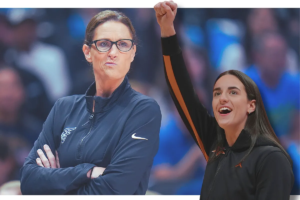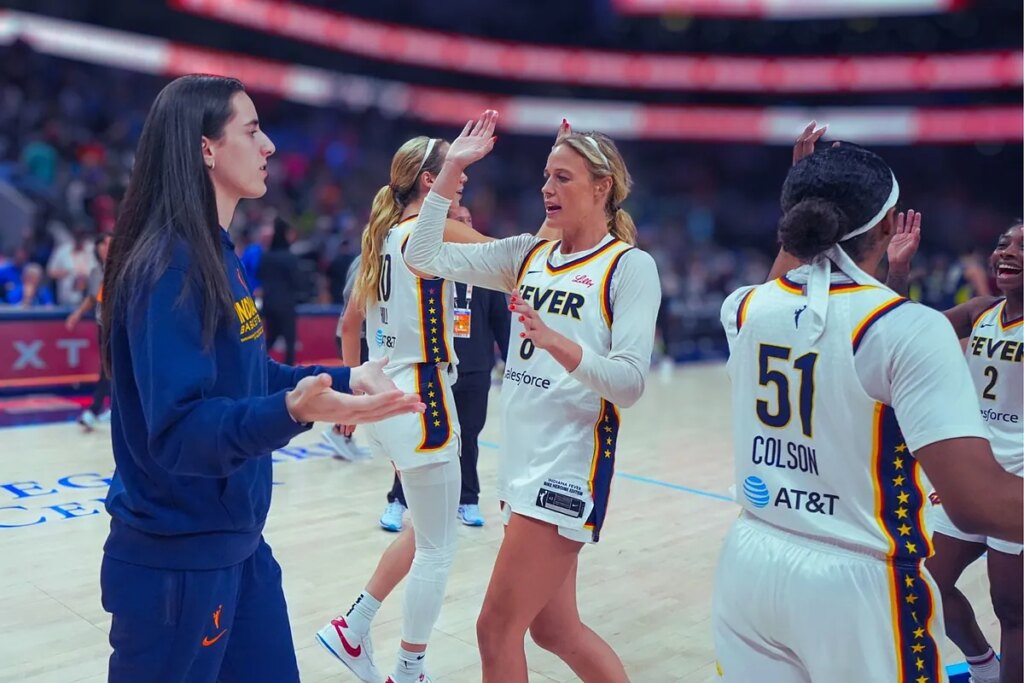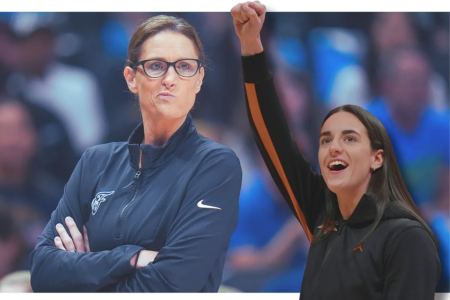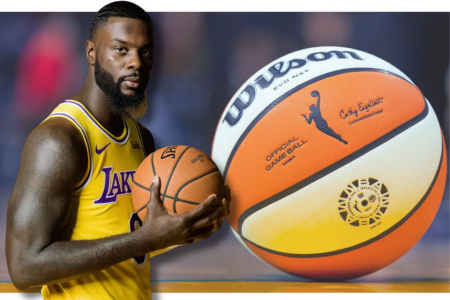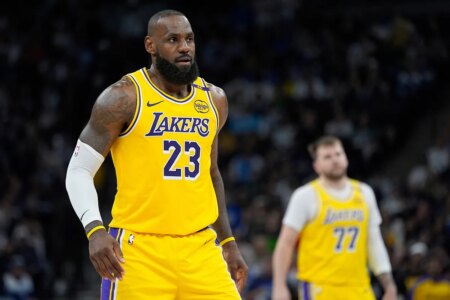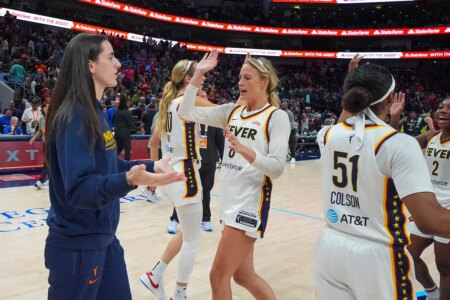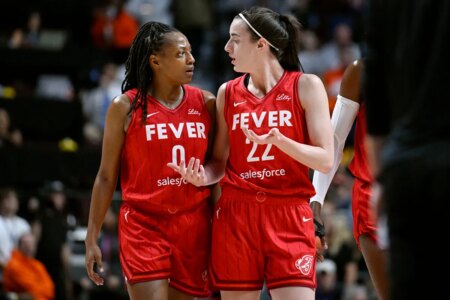The final stretch of the 2025 WNBA season has the Indiana Fever fighting for a playoff spot, but that doesn’t mean their roster is free of challenges. Injuries, constant adjustments, and strategic moves have marked the year for Kelly Krauskopf and Amber Cox, who have made smart additions like Aari McDonald and Chloe Bibby.
Still, many analysts expected a big move at the trade deadline. On August 7, Gainbridge Fieldhouse remained silent. The main reason: the WNBA’s strict salary cap of $1,507,100, very different from the NBA’s luxury tax system. Indiana, despite freeing up space after DeWanna Bonner’s departure, had only $95,320 available-insufficient for a major acquisition.
The value of keeping Chloe Bibby on the roster
One move that might have given them more flexibility was signing Bibby to a seven-day contract instead of securing her for the rest of the season. However, her ability to stretch the floor with her outside shooting justified every dollar of her prorated $23,322 contract.
Beyond money, the roster makeup limited trade options. Only three players have contracts beyond 2025: Caitlin Clark, Aliyah Boston, and Makayla Timpson. With the collective bargaining agreement still under negotiation, few players have signed long-term deals.
Caitlin Clark, in addition to her sporting value, represents 26.5% of the league’s economic impact. Since her arrival, the franchise’s value jumped from $90 million to $300 million according to Forbes, with a 300% increase in attendance and merchandise sales. Trading her would be unthinkable. Boston, meanwhile, is a key piece in the long-term project alongside Clark, while Timpson has yet to show significant commercial value.
The Indiana Fever and their strong chemistry
Even setting aside the salary cap and contracts, Indiana had another powerful reason not to make a move: team chemistry. Despite Clark’s injury, the squad has not fallen apart. Led by the experience of Natasha Howard, the Fever have shown they don’t rely on just one star and that the group, as it stands, can compete.
The front office seems convinced: rather than risking cohesion for an uncertain reinforcement, the bet is to finish the season strong with the current core and build on this foundation for the future.
Read the full article here

